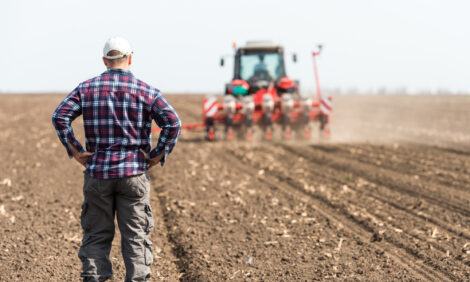



Lower Saxony, Germany announces 1st African swine fever case on pig farm
Outbreak found on sow farm in EmslandAfrican swine fever (ASF) has reached Lower Saxony for the first time. The outbreak was found in a farm in the southern district of Emsland. As announced by the Lower Saxony Ministry of Agriculture, the confirmation from the Friedrich Loeffler Institute (FLI) has been available since today (July 2nd). The farm in the municipality of Emsbüren keeps 280 sows and around 1,500 piglets. The entire stock will be culled on Sunday.
A restricted zone with a total radius of 10 kilometers has been set up around the ASF positive pig farm. There are 296 pig farms in this area and about 195,000 pigs are raised. The exclusion zone also extends to areas of the adjacent district of Grafschaft Bentheim. The measures in the exclusion zone include, among other things, spot checks in all farms and the ban on moving pigs (through traffic allowed).
Agriculture Minister Barbara Otte-Kinast: “Unfortunately, it was only a matter of time before swine fever reached Lower Saxony. This is a hard emotional blow for the pig farmers in our country. However, we have prepared intensively for a possible outbreak in recent years.”
She noted that as experts warned for years that ASF would enter the region and unfortunately, it has now become reality. ASF did not arrive first with wild boar, as in Brandenburg and Saxony, but on a farm of domestic pigs raised in southern Emsland.
After the experienced pig farmer had called his farm veterinarian based on the clinical findings in breeding sows, which expressed the suspicion of ASF, samples were immediately sent to the laboratory in Oldenburg for examination where the suspicion of ASF was diagnosed yesterday afternoon (July 1). Investigations into the possible cause of the virus entry were initiated immediately. So far, however, there is no "hot lead", according to the minister.
The establishment of the exclusion zone (protection zone and surveillance zone) is unfortunately associated with considerable restrictions for the pig farmers: the movement of pigs, products and liquid manure from holdings in the exclusion zone is strictly prohibited. Exceptions are only possible under certain conditions, compliance with which is checked by the responsible authorities.
The Minister asked all pig farmers in southern Emsland not to rush to transport animals in the near future due to the high risk of virus spread.
Minister Otte-Kinast: "Our most important goal now is to prevent further spread so that we don't experience a wildfire."
She asked pig farmers to "make sure that biosecurity is maintained on your farm."
With regard to the farm currently affected, she made an urgent appeal to the population to refrain from "epidemic tourism" in the Emsland in the interests of the extremely important prevention. ASF virus is very stable and remains infectious in the environment for a long time. It can be transmitted through certain meat products but also through contaminated feed, vehicles, clothing or tools. It is therefore essential to elevate biosecurity to reduce the risk of spreading the pathogen.
Pig farmers who also hunt should pay particular attention to the dangers of introducing the ASF virus through their vehicles, clothing, dogs or through contact with their animals.
In both domestic pigs and wild boar, infection with ASF causes a serious disease that is almost always fatal. It is not yet possible to vaccinate pigs against African swine fever. Since 2007, ASF had spread in Eastern Europe. In 2020, sick wild boars were found in Germany for the first time. In mid-July 2021, the disease was also registered for the first time in a pig fattening farm in Germany. Cases in domestic and wild pigs have so far occurred in Brandenburg, Baden-Württemberg, Saxony and Mecklenburg-Western Pomerania.
Regular federal and state exercises have taken place in recent years to check the processes. The state has also purchased materials to contain the disease in the event of an outbreak in wild boar. AN Vorsorge GmbH was set up so that the municipal veterinary authorities do not have to act alone in the event of an ASF outbreak but can receive adequate support.
African swine fever is not a threat to humans.







